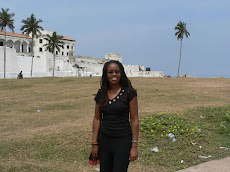
I’m surprised I can still carry a year’s worth of my living needs (clothes, toiletries, quasi-essential electronics, books/professional supplies) all by myself (or with only a little assistance). When I studied abroad for 9-months in college, I simply had one super-large convertible backpack. That was 15 years ago. I have amassed a few more things since then.
For this journey to Namibia, I packed all of my things into a large internal frame backpack, a large suitcase, a small carry-on suitcase, and a small backpack. En route to Namibia and with my current load, I have a flight from Phoenix to NYC, NYC to Dulles(Va), Dulles to Johannesburg, Johannesburg to Windhoek(Namibia), then from Windhoek to Khorixas; SO, I need to either be practical in packing or practice limping from the strain of the weight. There is some travel between my arrival in Windhoek and my arrival in Khorixas; but, I won’t have to carry all of my things with me during those few days. I think I did somewhat okay. Here are the contents of my luggage:
CLOTHES
· Shoes (flip-flops, tennis shoes/sneakers, two pairs of sandals, a pair of dress shoes, hiking boots)
· Pants (jeans-2, cargo pants-2, khakis-1, slacks-1, gouchos-1)
· Skirts (1)
· Dresses (4)
· Suit (1)
· Blouses/Work Shirts (7)
· Casual/Sportwear (sweatsuit, t-shirts-5, shorts-3, bathing suit, sarong, tank tops-2)
· Pajamas(1)/Undergarments(20+)
· Jacket (1)
LINEN (Sleeping Bag, Travel Pillow, Twin Bedding Set, Towels-2, Washcloths-3)
ELECTRONICS (Camera, Laptop, DVDs, iPod/Speakers, Battery Charger, Batteries, Travel Radio, Digital Audio Recorder, Webcam, International Converter Kit, Phone, Electronics Cords/Accessories)
TOILETRIES/PERSONAL ITEMS (First-Aid Kit, Flashlight, Pocketknife, Solar Shower, Travel Scrabble, Uno, Sunscreen, Medication/Vitamins, Insect Repellant, Deodorant, Soap, Toothbrush/toothpaste, Snacks, Umbrella, Poncho)
GUIDES/LITERATURE (Country/Region Guides, Maps, Program Notebooks-2, Quasi-Pleasure Reading – 3)
In my next post, I’ll share more about my 14-hour flight to Johannesburg with 21 fellow WorldTeach Volunteers!









.jpg)